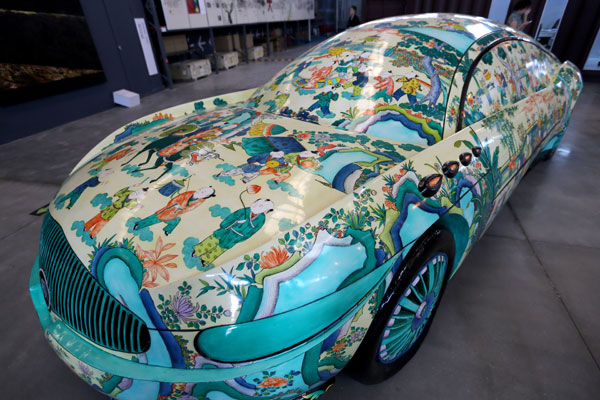 |
|
A porcelain car made by a Chinese artist is exhibited.[Photo by Jiang Dong/China Daily]
|
The free port has also provided services for Sotheby's auctions, Liu says. The most recent was an auction in August on which oilpaintings, furniture and sculptures from European countries were sold.
Collectors can store their purchases in warehouses at the free port. More than 1,000 pieces of art are housed here, including Zao Wou-Ki's Abstraction, which sold for 76 million yuan ($12.37 million) at Sotheby's last year, as well as antiques like blue and white porcelain from the Yuan Dynasty (1271-1368).
Individuals and companies bringing art into China do not need to pay taxes as long as it is shipped into Beijing's free port.
The free port has cooperated with similar facilities in Geneva, Luxembourg, Germany, Paris and Singapore, and art dealers and collectors can easily move their treasures from one free port to another.
"We have mapped out a global free-port strategy. Our aim is to build an art free-port network in Asia," says Wang Yudong, director of the art trade center at the Beijing Culture Free Port.
Almost one-third of China's auction houses are headquartered in Beijing. As China's culture hub, the capital stages numerous exhibitions, art fairs and auctions every year.
